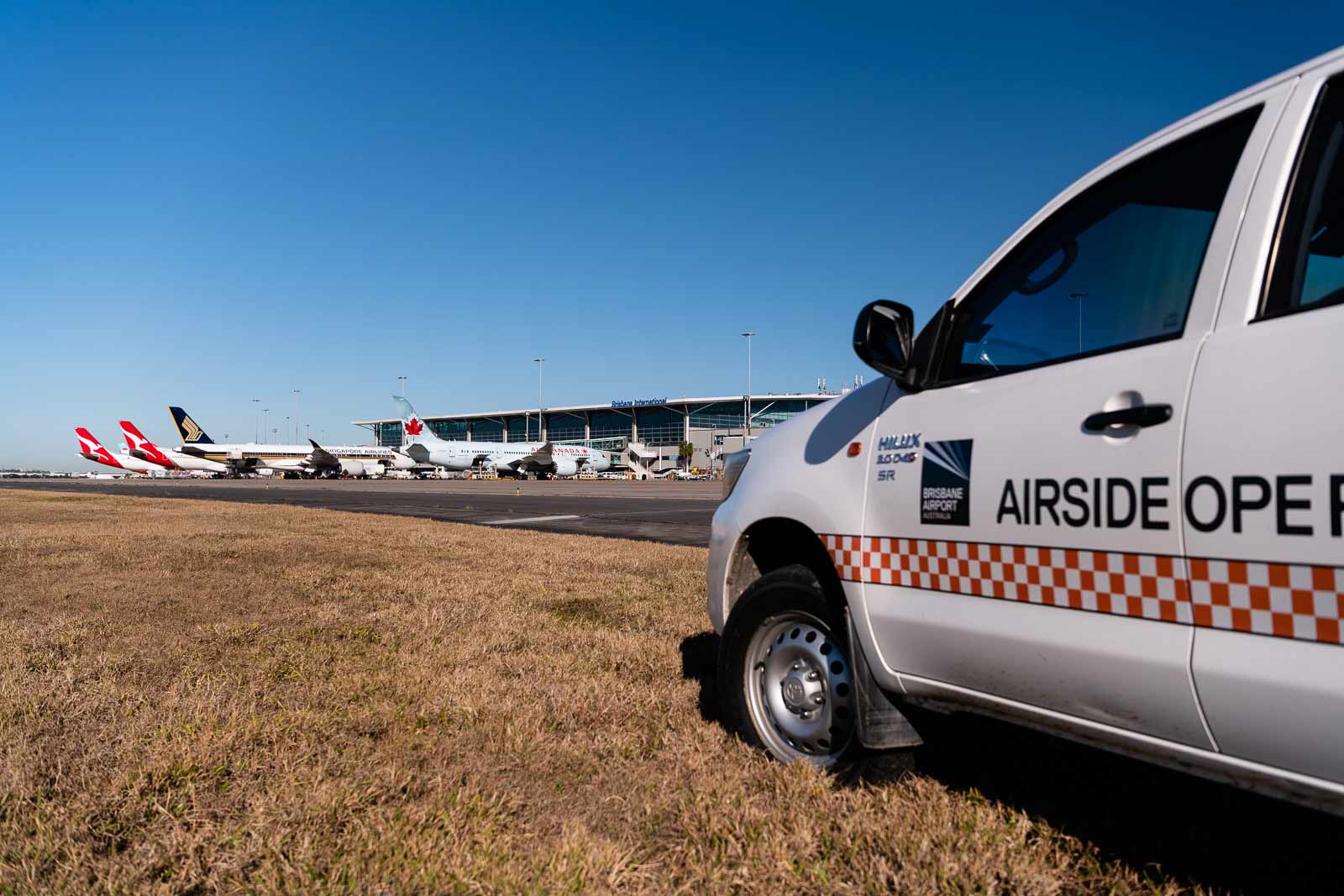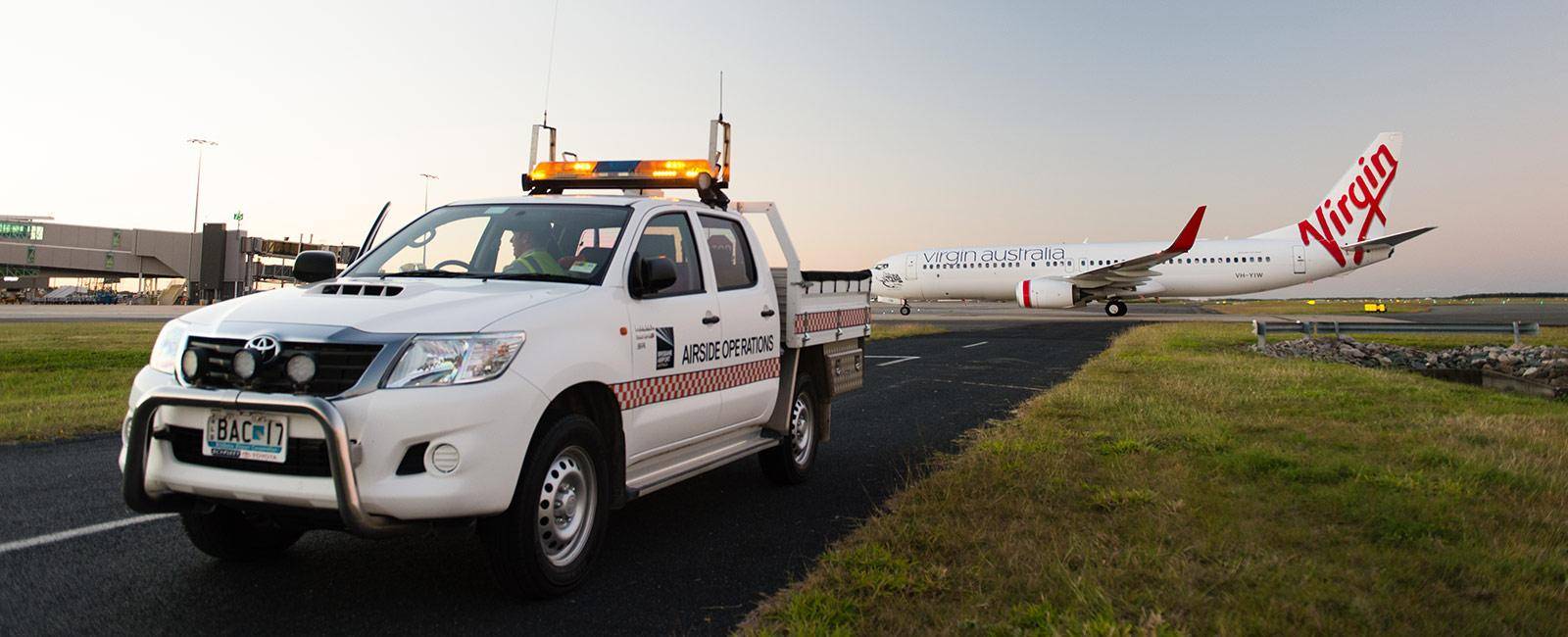
It might surprise some people to know that flying on a commercial airline is by far the safest way to travel. But to everyone working within the aviation industry, this is a well-known fact that is testament to the incredible depth of expertise found within those working at the forefront and behind the scenes.
It might also surprise some people to know that one of the most integral roles when it comes to aviation safety is found outside of aeroplanes, control towers and surveillance offices. But to the men and women who don a fluoro vest and drive around the entire airport precinct each and every day, they know that their role as an Airside Operations Officer is a critical piece of the puzzle.
There are approximately 20 Airside Operations Officers at BNE, working 12-hour shifts across a 24/7 roster that ensures a team is at work every hour and every day of the year to ensure that it is ‘business as usual’ on airport. They all possess a rich myriad of skills, with their role defining them as risk-management gurus, wildlife experts, firearm handlers, plane spotters, traffic cops, gardening experts, and enforcers of regulatory obligations.
Peter Dunlop, Airside Operations Manager, has no qualms in saying Airside Operations Officers are the most important people airside in terms of safety. After all, everything they do is meticulously planned to avoid incidents from unfolding.
“They conduct daily inspections of the airfield – including ramps, aprons, taxiways, runways and all other areas airside – to make sure the airfield is in compliance with various standards and regulations. The infrastructure must be 100%.”
“Officers also enforce all airside driving rules and regulations and have authority to issue traffic infringements or warnings to any airport or airline employee who fails to comply with a rule or regulation.”
During their inspections, officers are continually motoring for and removing FOD (foreign object debris) from around the airfield and ramp areas. The most common culprits are coffee cups, plastic bottles and (refrain from being alarmed) pieces of aircraft. FOD possess a major hazard to aircraft as it can cause substantial damage to engines, tyres, and the undercarriage.
Another major part of their role is warding off wildlife strikes. Officers can identify just about every species of bird you could possibly encounter within the 2700ha of Brisbane Airport, and they conduct regular inspections throughout the day to ensure wildlife are kept away from the airfield.
The biggest tool they have in warding off wildlife? Airside Operations vehicles, with their presence often startling birds, hares, snakes, and foxes. Officers also utilise pyrotechnic shots to startle particularly stubborn wildlife, and as a last resort, will use live shots to prevent costly and dangerous wildlife strikes. “If there are dead animals or birds around the aircraft, the remains must be removed immediately so as not to attract other species.
“If a wildlife strike occurs, officers check the aircraft out with engineers and check for remains. DNA is taken for analysis so that we know the type of bird or animal struck, which goes into our database which gives us the threat level based on the number and type of species struck,” Peter explains.
Any day where you don’t hear about Airside Operations Officers is a good day, as it means they have prevented incidents from occurring and successfully managed the many hazards and risks that an airside environment possesses.

